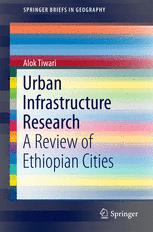

Most ebook files are in PDF format, so you can easily read them using various software such as Foxit Reader or directly on the Google Chrome browser.
Some ebook files are released by publishers in other formats such as .awz, .mobi, .epub, .fb2, etc. You may need to install specific software to read these formats on mobile/PC, such as Calibre.
Please read the tutorial at this link: https://ebookbell.com/faq
We offer FREE conversion to the popular formats you request; however, this may take some time. Therefore, right after payment, please email us, and we will try to provide the service as quickly as possible.
For some exceptional file formats or broken links (if any), please refrain from opening any disputes. Instead, email us first, and we will try to assist within a maximum of 6 hours.
EbookBell Team

4.7
66 reviewsThis book reviews contemporary research on urban infrastructure in 76 Ethiopian cities. It examines urban infrastructure issues in these cities and covers a wide range of topics from sustainability and smart cities to research methods employed by urban infrastructure investigators with regard to Ethiopian cities. Research on urban infrastructure legitimacies and modalities has established its value worldwide in recent years, though it is still fairly young in the Ethiopian context.
The first chapter outlines ongoing issues of debate concerning urban infrastructures, including but not limited to discourses on sustainability, smart cities, innovative financing methods, and potential partnerships. Urban infrastructure issues in Ethiopian cities are examined in the second chapter, while the third chapter presents a review of the most relevant literature for researchers. Findings show that the citations in the research reports are mainly from the materials available over the internet, including WHO, UN-Habitat and unpublished local materials. The fourth chapter identifies patterns in the findings and recommendations of the research reports discussed. The results reveal that there is a wider gap between supply and demand with regard to urban infrastructure in Ethiopian cities, a situation that is further aggravated because of the growing urban population and already existing backlogs. The fifth chapter reviews the essential methods employed by urban infrastructure investigators in Ethiopian cities. In this regard, the cross-sectional study method with the use of survey method has been broadly adopted among investigators.
Lastly, the book presents a summary and recommendations. It was observed that the urban infrastructure boom in Ethiopia is primarily concentrated in the key cities, and the current pattern of urban infrastructure provision does not incorporate the notion of sustainability. Hence, the book calls for setting the agenda of future research on urban infrastructure and services in Ethiopian cities together with the universities, private sector and government, who should ideally collaborate to produce the knowledge needed to improve quality of life, welfare, productivity, and economic growth.